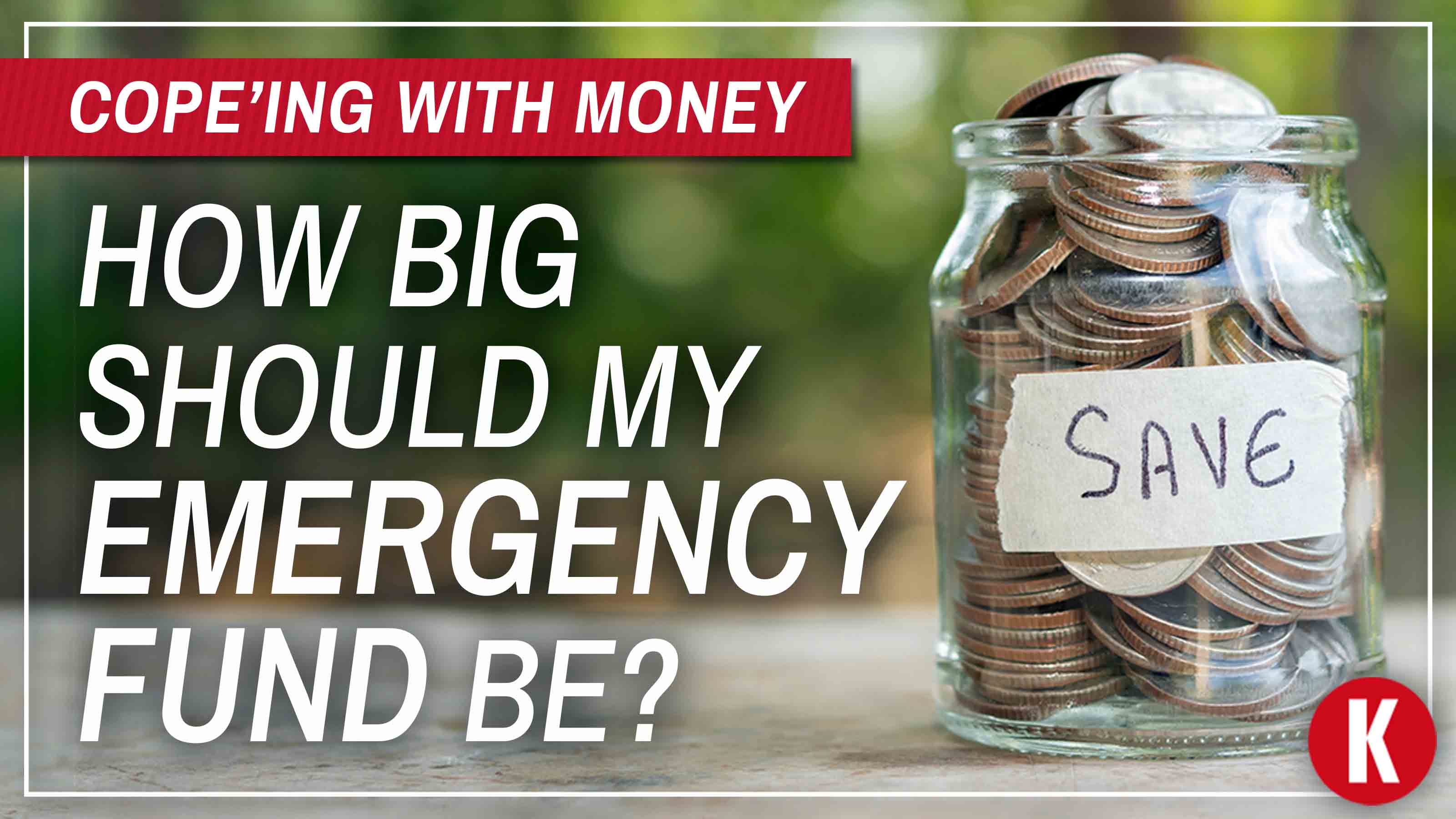Planning Your Child's Financial Future
Atlanta Falcons linebacker and Kiplinger contributing editor Brandon Copeland talks about ways to set your child up with a strong financial foundation.

Profit and prosper with the best of Kiplinger's advice on investing, taxes, retirement, personal finance and much more. Delivered daily. Enter your email in the box and click Sign Me Up.
You are now subscribed
Your newsletter sign-up was successful
Want to add more newsletters?

Delivered daily
Kiplinger Today
Profit and prosper with the best of Kiplinger's advice on investing, taxes, retirement, personal finance and much more delivered daily. Smart money moves start here.

Sent five days a week
Kiplinger A Step Ahead
Get practical help to make better financial decisions in your everyday life, from spending to savings on top deals.

Delivered daily
Kiplinger Closing Bell
Get today's biggest financial and investing headlines delivered to your inbox every day the U.S. stock market is open.

Sent twice a week
Kiplinger Adviser Intel
Financial pros across the country share best practices and fresh tactics to preserve and grow your wealth.

Delivered weekly
Kiplinger Tax Tips
Trim your federal and state tax bills with practical tax-planning and tax-cutting strategies.

Sent twice a week
Kiplinger Retirement Tips
Your twice-a-week guide to planning and enjoying a financially secure and richly rewarding retirement

Sent bimonthly.
Kiplinger Adviser Angle
Insights for advisers, wealth managers and other financial professionals.

Sent twice a week
Kiplinger Investing Weekly
Your twice-a-week roundup of promising stocks, funds, companies and industries you should consider, ones you should avoid, and why.

Sent weekly for six weeks
Kiplinger Invest for Retirement
Your step-by-step six-part series on how to invest for retirement, from devising a successful strategy to exactly which investments to choose.
What's up, everybody? It's your boy, Brandon Copeland, aka Professor Cope, and you are now tuned in to another episode of Cope'ing With Money.
This particular episode of Cope'ing With Money is very special because my wife Taylor and I recently welcomed our second son, our second child, into the world.
Braylon Myles Copeland: Welcome to the world!
From just $107.88 $24.99 for Kiplinger Personal Finance
Become a smarter, better informed investor. Subscribe from just $107.88 $24.99, plus get up to 4 Special Issues

Sign up for Kiplinger’s Free Newsletters
Profit and prosper with the best of expert advice on investing, taxes, retirement, personal finance and more - straight to your e-mail.
Profit and prosper with the best of expert advice - straight to your e-mail.
Hey, it gets realer from here.
Welcome to the pandemic world. Welcome to the new hybrid world. Welcome to the new norm. You are loved. We want you to be loved. But as a father, as a parent, I am armed with the responsibility of figuring out what is the best way to equip my sons for the strongest future overall. But since this is Cope'ing With Money, we are going to talk about how to set up our newborn with a strong financial future.
It's important to think like a baby when it comes to building a financial future and crawl before you walk. When holding your newborn, it's easy to think about all the beautiful things that you have planned for them and things that you want to see for their lives. And it's also easy to lose track of the fact that you have yet to fill out a birth certificate or receive a Social Security number for your child yet.
So, let's make sure we're filling out and submitting the proper information to receive a birth certificate and social security number, because you can't set up a bank account, a custodial account, any type of account, 529 savings account, unless you have that information. So, let's crawl before we walk: Submit the paperwork properly.
Look Into a Custodial Account
OK. So now that you've read the baby books, and Mama and baby are OK, it's time to start making actionable steps to set up your child's financial future.
So, the first account that I think is a no-brainer for any child or minor is a custodial account. A custodial account is a savings account for a minor but administered by an adult, or otherwise known as a custodian. There are two types of custodial accounts that are most commonly referred to:
- There's the Uniform Transfers to Minors Act, otherwise known as the UTMA
- And the Uniform Gifts to Minors Act, otherwise known as the UGMA
Both of these are similar in goal; however, the UTMA, the Uniform Transfers To Minors Act, actually can hold a variety of different asset classes – real estate securities, artwork, and a bunch of other different things – in there. However, the UGMA account is limited to financial assets such as cash, securities, bonds, mutual funds … those types of assets.
At the time of this feature, all states allow UGMA accounts; however, all states, except for South Carolina allow UTMA accounts. Something to keep in mind. Once you receive that paperwork that we were referring to earlier – that birth certificate and that Social Security number – then you'll be able to take that to the bank of your choice and set up your child a custodial account.
Start Investing for Your Child
As I've always said, the biggest lie ever told was "put your money in the bank, put your money in the bank, put your money in the bank." As important as it is to have some money stored away, we need to view our savings account as a stepping-stone, rather than the final location for our money.
Now is the time to consider putting that money into an investment account. By getting a jump-start on their portfolio, your child can reap the benefits of compound interest and learn to make their money work for them, especially in those younger years when they're not at the grocery store, actually physically tugging on your jacket to purchase the candy bar in the checkout lane.
Typically, most people are looking at either a traditional brokerage account that can allow their child's money to grow through investments and compounding interest working for them over time, and/or a 529 college education savings account.
When it comes to 529 education savings plans, Kiplinger.com is a great resource as usual. Make sure to check out our panel discussion, as well as an article that I've linked here in the description. There's a lot of information in there that can help you understand whether or not this is right for you. But overall, a 529 education savings plan means you are putting money into this vehicle, allowing it to grow tax-free, where it can only be used for the education of the beneficiary.
So, you put $5,000 in today, allow it to grow for 18 years, tax-free. Or you might decide, "Hey, let's put this toward some books or some tuition in high school." You have some flexibility with how you withdraw from the account as long as the money is indeed used to further your child's education.
Well, what happens if the beneficiary that was for this account is the next LeBron James and they skip high school, go straight to the NBA? Or they get a great scholarship and we don't need all of the money that we've built over time within this 529 account to put toward this single beneficiary? Well, there are ways for you to use that for a different child or minor within your household. However, you can't take it out and now buy yourself a nice car. There will be penalties for that.
Some states actually have tax benefits for you contributing to a child or minor's 529 account. Use the tools and the rules to your advantage.
Pay Your Child as an Employee
One of the things that I like to make people aware of, especially business owners, is that as the owner of an LLC or a business, you can potentially pay your child up to $12,500 without them being taxed for the year and receive a deduction for it as an employer.
So, if you have a business, and you have a child, and you're going to be paying for your child's lifestyle anyway, there might be an opportunity for you to find a real role within your business for them to take advantage of.
Is your child a model? Are they an influencer? Can you take some pictures of them and put them on a pamphlet?
Obviously, everyone's situation is different. So, this is something that you would want to consult with an accountant or your financial advisor about before making any business decisions. But if you've learned anything from me, it's sometimes we gotta get creative.
Take Care of Mama
Lastly, and I know it's not a finance tip, but make sure Mama is OK. Help her on the recovery process. Women, I have to go ahead and give you a huge shoutout. If it was up to me, if it was up to us, I promise you the population would end. It would probably have ended a long time ago. But because you all are so strong and so amazing, we continue to live on.
I don't know how you do it.
So, let's make sure we pour into the ladies in our lives and make sure that we ensure that their recovery process goes as smooth as humanly possible.
So, with that being said, understand that this is just a start. This is just a plan. Life inevitably will make us adjust and stay flexible and stay nimble. And that's OK.
I understand the pressure as a parent of wanting to make sure that your child has the strongest future possible. And yes, that does include financially.
So, using the tools we mentioned in this feature will help set your child up with a solid financial foundation. And then, it's on you to continue to create a plan and execute on that plan.
Do you want to put $100 a month into a custodial account? Do you want to revert all gifts from grandparents to that brokerage account? You have a plethora of different options at your disposal. It's about figuring out, as always, what's right for you, your child, and ultimately your family.
Let's continue to push and spread great money information and great money conversation. If you want to see any of my other money features, go to Kiplinger.com/Cope, and as always, I will see you next time.
Stay safe, stay blessed. Professor Cope, peace.
Links and Resources Mentioned
- How to Talk About Money With Your Children
- Saving for College? Everything You Need to Know About 529 Plans
- Follow Brandon Copeland on Instagram and Twitter, or send him an email.
- Follow Kiplinger on Facebook, Instagram and Twitter
Profit and prosper with the best of Kiplinger's advice on investing, taxes, retirement, personal finance and much more. Delivered daily. Enter your email in the box and click Sign Me Up.

Brandon Copeland, an active, eight-year veteran NFL linebacker, has spent the past two years teaching a class he created, and nicknamed “Life 101,” at his alma mater, the University of Pennsylvania. Life 101 focuses on life’s constant money decisions so that students are better prepared for the financial realities that adulthood brings. Copeland also spends time off of the field consulting and investing in real estate. He is the co-founder of a nonprofit organization, Beyond the Basics Inc., and was the recipient of the 2020 NFLPA Alan Page Community Award, the NFLPA’s highest honor given for extraordinary dedication to service, social justice and equality. He is a member of CNBC’s Financial Wellness Council and the NFL Players Inc. Advisory Committee. Copeland has interned for UBS and Weiss Multi-Strategy Advisers.
-
 Nasdaq Leads a Rocky Risk-On Rally: Stock Market Today
Nasdaq Leads a Rocky Risk-On Rally: Stock Market TodayAnother worrying bout of late-session weakness couldn't take down the main equity indexes on Wednesday.
-
 Quiz: Do You Know How to Avoid the "Medigap Trap?"
Quiz: Do You Know How to Avoid the "Medigap Trap?"Quiz Test your basic knowledge of the "Medigap Trap" in our quick quiz.
-
 5 Top Tax-Efficient Mutual Funds for Smarter Investing
5 Top Tax-Efficient Mutual Funds for Smarter InvestingMutual funds are many things, but "tax-friendly" usually isn't one of them. These are the exceptions.
-
 Smart Strategies for Paying Your Child an Allowance
Smart Strategies for Paying Your Child an AllowanceBy giving your kids money to spend and save, you’ll help them sharpen their financial skills at an early age.
-
 My Four Pieces of Advice for Women Anxious About Handling Money
My Four Pieces of Advice for Women Anxious About Handling MoneyTalking about money can help you take control of your finances.
-
 Reading, Writing, and Personal Finance
Reading, Writing, and Personal FinanceRaising Money-Smart Kids A growing number of high schools are adding personal finance to their curriculum.
-
 How Big Should My Emergency Fund Be?
How Big Should My Emergency Fund Be?Feature NFL linebacker and Kiplinger contributing editor Brandon Copeland discusses the importance of building an emergency fund.
-
 Homeowners Insurance: How to Protect Your Home
Homeowners Insurance: How to Protect Your HomeBrandon Copeland NFL linebacker and Kiplinger contributing editor Brandon Copeland discusses the ins and outs of homeowners insurance.
-
 The "Real" Cost of Buying a Car
The "Real" Cost of Buying a CarFeature Atlanta Falcons linebacker and Kiplinger contributing editor Brandon Copeland illustrates how car prices are far more than meets the eye.
-
 How to Plan a Budget-Friendly Family Vacation
How to Plan a Budget-Friendly Family VacationBrandon Copeland Atlanta Falcons linebacker and Kiplinger contributing editor Brandon Copeland provides tips on how to go on vacation without breaking the bank.
-
 The Great Resignation: How to Quit Your Job With Confidence
The Great Resignation: How to Quit Your Job With ConfidenceBrandon Copeland Atlanta Falcons linebacker and Kiplinger contributing editor Brandon Copeland provides tips on how to properly quit your job and upgrade your career.